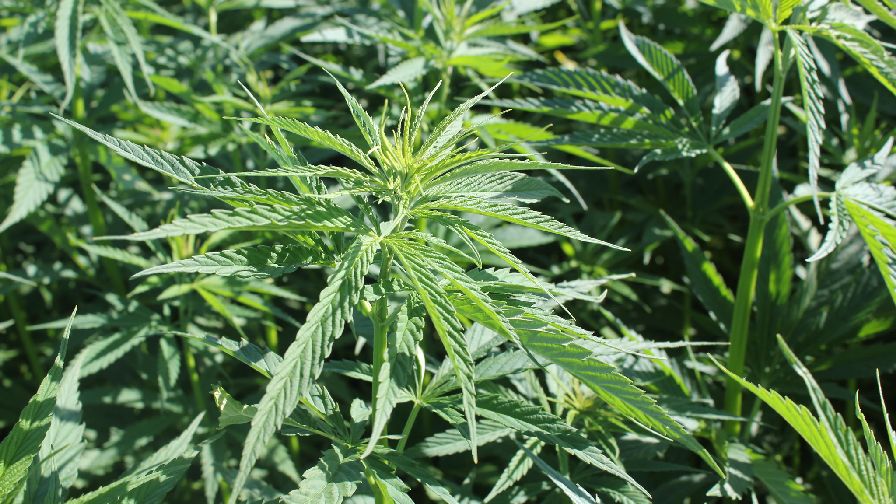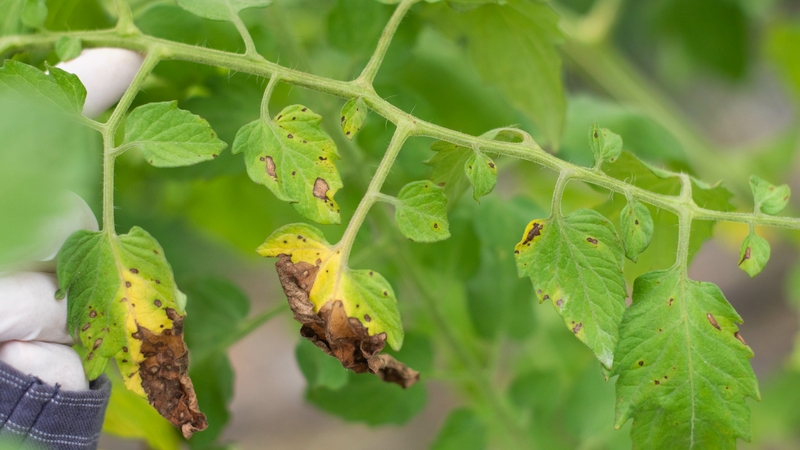Bowles Farming Planted Hemp in 2019 — Here’s What They Learned

Industrial hemp. Photo by Marcia O’Connor
To hear Derek Azevedo tell it, Bowles Farming Company’s 2019 hemp growing experiment was part curiosity, part duty.
“We’re always looking for different crops we can grow. And even though hemp is the hot topic right now, we’re doing basically the same thing in carrots, garlic, and asparagus,” the farm’s executive vice president says.
That healthy curiosity was merely part of the equation that led the 11,000 acre, highly diversified specialty farm in California’s western San Joaquin Valley down the hemp path. Azevedo says it’s his job to explore all avenues for revenue to its governing board.
“We’ve got a fiduciary duty to explore all routes to generate new revenue for our board and shareholders. And with all the different changes in the Farm Bill, and with the legalization of medicinal CBD and other cannabinoids, we knew it was something we needed to take a closer look at,” Azevedo explains.
Applying the Ag Model to Hemp
Azevedo says Bowles began thinking about hemp as a possible crop back in 2017. Then the 2018 Farm Bill passed, and the group decided to give the crop a fair agronomic shake.
“We’re not cannabis guys. So we came at it from an ag space perspective,” he says. “When everyone was talking hemp making $100,000 per acre and all of these too-good-to-be-true numbers, we never bought into that hype. We took a more measured approach. Let’s look at this from an ag perspective, and let’s figure out how professional adults grow this stuff.”
The group didn’t pledge big acreage to the emerging crop. Rather, they established multiple small plot planting configurations. They wanted to test various strategies that have worked on the farm for specialty crops. They looked at things like planting it in 60-inch-wide rows with drip tape like tomatoes, or setting it up like cilantro under sprinkler.
They also avoided the flashy high CBD and CBG varieties that many commercial growers were planting in 2019. They opted instead for the cheaper grain-production (biomass) varieties to “just get the stuff in the ground.”
“The goal was to learn without losing,” Azevedo recalls. “Let’s model out these different production models and harvesting practices, and let’s go in at small scale this first year and see what we come out of this with. We didn’t plant with the intent to sell anything at the end of the season.”
Will Bowles Grow Hemp in the Future?
If pressed to grow hemp at commercial scale someday, Azevedo is confident the group could do it successfully. But it’s not something that the legacy California ag producer is interested in turning over major acreage to anytime soon.
“If we needed to scale up quickly and grow a bunch of hemp, then sure. We could go ahead and do that,” he says. “But for me, the problem to solve in hemp is not how to grow it. And it’s not seed – well, actually it’s partly seed. But the problem to solve is not in areas where we as a farm need to learn anything about it. We can grow it well, harvest it well, we can transplant young plants out of our greenhouse.
“Where I have problems with the crop is, number one, I don’t trust any of the seed suppliers,” Azevedo adds. “I’m sure there are some out there that are legit. But there was a bunch that had bad stuff go to seed last year, and it hurt farmers.”
Market forces are another aspect of hemp production that is virtually a non-starter at Bowles.
“The market is completely saturated with biomass. And then you have the extraction and processing side. And the [supply] chain there is weak and under served and made up of a hodgepodge of unorganized processing infrastructure,” Azevedo says. “And then, I think the science behind CBD and the health benefits on that has proven kind of weak, in my opinion.”
Azevedo’s Take
Azevedo’s advice for prospective hemp growers is simple: Have a plan. And make sure you will get paid before you plant a thousand acres of the stuff.
“Before you write that check, before you invest, just like with any other business, don’t speculate on what this stuff will be worth. Don’t plant it today before you figure out who’s going to buy it later,” he says. “I know I wouldn’t plant an acre of tomatoes if I didn’t know who is going to buy it, and that’s a lot cheaper [than hemp].”










